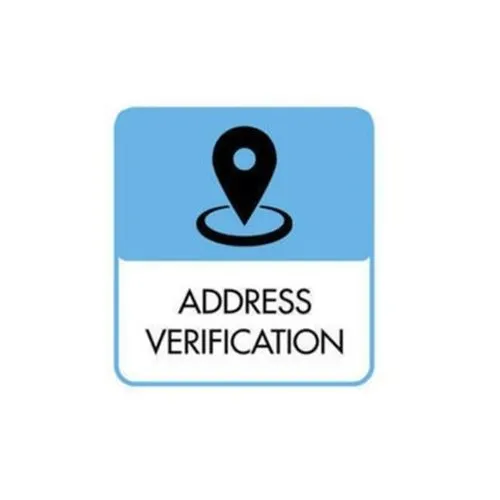Since credit/debit cards are becoming an increasingly adopted method to make digital payments, customers’ attitude toward online shopping is changing. Where this is reshaping the landscape of online industries, especially e-commerce, scam risks are also on the rise. For instance, Card-Not-Present (CNP) fraud is making consumers lose over $10 billion. In return, it costs e-commerce sites a hefty amount due to chargeback claims, failed deliveries, and transaction scams.
Fraud risks are making online payments more vulnerable while affecting the overall shopping experience of customers. This requires the e-commerce industry to build efficient address verification mechanisms to ensure the customer making digital payments is present at the particular location. This blog highlights ways online address verification solutions help mitigate chargeback fraud and other attempts.
Address Verification Systems – Countermeasures for Credit Card Fraud
Customers might feel placing an online order and making e-transactions is a third-degree treatment due to complex identification steps. For using credit cards to make digital payments, consumers undergo various checks such as Card Verification Value (CVV) code, zip codes, and billing address verify. Information other than credit card details is crucial for providing security to customers as well as securing e-commerce processes.
E-commerce platforms need to integrate better verification of address for providing an extra layer of security. AI-powered IDV solutions provide real-time analysis of location which helps online stores to ensure the buyers making a digital payment is the actual cardholder. This process to mitigate credit card fraud involves the following:
- CVV Verification
This is the code present on the back side of credit cards that actually helps combat CNP fraud. If not stolen, only the legitimate owners know about this three-number confidential key.
- Address Validation
Online address verification helps cross-verify customer information with the one filed with credit card issuers. This provides two-factor authentication for validating transactions and making sure the consumers using a particular card are the actual owners.
The next section further provides details regarding how online verification of address helps prevent CNP fraud.
Read more : https://galaxyoftrian.com/
Prevents Use of Stolen Credit Cards
With the increase in the adoption of online payments, cyber security threats are also simultaneously rising. Criminals hack into databases of companies with lax dignification checks and steal confidential data of customers. This involves Personally Identifiable Information (PII), credit card details, and others.
While fraudsters use them to make online payments, it also helps them steer clear of address verification checks. By committing data breaches, criminals can also obtain CVV codes but AI-powered real-time analysis of geo-location can help e-commerce platforms to combat CNP fraud.
Multi-Layered Authentication Checks
Fraudsters use fake credit card details to claim false chargebacks which in turn leave e-commerce platforms a loss of million. Similarly, high risk of payment scams also drives reputational damage to online stores.
Stealing information and committing CNP fraud have become easier due to the availability of technologically advanced tools. However, fraudsters can not fake real-time locations. Therefore, AI-powered verifying address services help e-commerce platforms cross-validate cardholders and ensure a secure shopping experience.
Identifies Purchases Made by Imposters
With advanced tools at their disposal, fraudsters impersonate legitimate cardholders and make online payments under someone else’s name. They use fake details to dodge address verification checks. Criminals often steal credit cards which provides them with the CVV code as well. Therefore, e-commerce sites need more than just identification, they also require cross-validation of documents.
The AI-powered services help online stores to verify address by cross-matching supporting documents such as ID cards, driver’s licenses, and passports against global registers. Therefore, e-commerce sites can prevent CNP fraud while validating customers’ address across various databases.
Prevents False Chargeback Claims
CNP fraud is exposing e-commerce platforms to high-value costs as the actual cardholder is unaware of the transaction. After noticing the suspicious payments, customers file for a chargeback dispute with their payment providers. This further drives reputational damage to online stores. With advanced AI-powered address verification systems in place, e-commerce sites can better assess customers’ details.
Provides a User-Friendly Experience
Online address verification mechanisms provide an additional layer of security to both customers as well as e-commerce businesses. AI-powered solutions are helping online stores provide a user-friendly experience. With easy steps such as filling in information in an online form, uploading supporting documents, and instant analysis of geo-location, digital IDV solutions have made verifying an address easier.
Concluding Remarks
Address verification solutions are helping the e-commerce sector by providing multi-layers identification in order to combat credit card fraud. While online stores are making efforts to enhance their services and provide digital payments, criminals are committing cyber-attacks to reap their share of illicit benefits. Therefore, online verification of address helps e-commerce platforms to validate transactions, cross-verify location details, and authenticate geo-tagging data for a seamless shopping experience.
